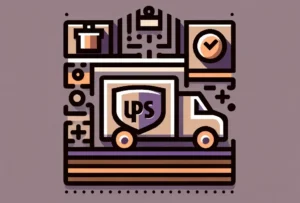Walking into a job interview can sometimes feel like you’re stepping into a boxing ring with one arm tied behind your back, especially if confidence isn’t your strong suit. This post is your corner coach, offering you strategies to build up that confidence so you walk in ready to land the job.
Quick Takeaways:
- Master your interview by thoroughly preparing on the company and practicing answers to common and complex questions, exuding readiness and confidence.
- Make a stellar first impression with confident posture, eye contact, and dressing a notch above the company’s dress code to show you mean business.
- Post-interview, reflect on your performance and actively seek feedback to turn every interview into a stepping stone towards your dream job.
1. Understanding Your Worth
Before you even set foot in the interview room, it’s crucial to acknowledge and appreciate your unique value proposition. This isn’t about flaunting or overstating your achievements, but rather, recognizing the hard work, skills, and experiences that have shaped your career thus far. Think of it this way: every job, project, and task you’ve tackled has contributed a piece to the puzzle that is your professional prowess.
To really drill down into this, make a list of your achievements, both big and small. Consider the challenges you’ve overcome and the specific skills you’ve honed along the way. For instance, if you led a project that resulted in a 20% increase in revenue for your department, that’s a huge win! These accomplishments aren’t just bullet points on your resume; they’re testaments to your capabilities and resilience.
2. The Power of Preparation
Now, let’s talk about prepping for the big day. Confidence comes from knowing you’re ready for whatever comes your way, and nothing screams readiness quite like thorough preparation. Start by researching the company inside and out. Understand their mission, their products or services, and, if possible, their company culture. Websites like Glassdoor can offer invaluable insights into what it’s like to work there, straight from the horse’s mouth.
Next, practice your answers to common interview questions but go beyond the usual “tell me about yourself”. Dive into specifics like “Describe a time when you faced a challenge and how you overcame it.” This not only shows your problem-solving skills but also your ability to reflect and learn from past experiences.
But here’s a unique nugget of advice: also prepare questions for your interviewer. This flips the dynamic and shows you’re genuinely interested in the role and the company. For example, ask about the team you’ll be working with or how success is measured in the role you’re applying for. It demonstrates foresight and engagement, traits any company would value.
3. Mastering First Impressions
First impressions are, as they say, everything. From the moment you walk through the door, you’re being assessed on not just what you say but also how you carry yourself. Here’s where non-verbal cues like posture, eye contact, and attire come into play.
- Posture: Stand tall, with shoulders back and head held high. This doesn’t just project confidence; it also helps you feel it.
- Eye Contact: This one can be tricky, especially if you’re nervous. But maintaining good eye contact shows you’re engaged and assertive. Practice with friends or family if you need to.
- Attire: Always err on the side of professionalism. Even if you know the company has a relaxed dress code, showing up in business casual demonstrates that you take the opportunity seriously.
But here’s a piece of advice that often goes unsaid: consider your entrance. Your interaction with reception staff or any employees you meet before your interview can impact the hiring team’s impression of you. Greet everyone with a smile and a polite “hello”. These small interactions can set a positive tone before you even say a word to your interviewer.
Remember, interviews are as much about gauging your fit within the company culture as they are about assessing your skills. By understanding your worth, thoroughly preparing, and mastering first impressions, you’re setting yourself up for success. And remember, confidence is key. Walk in there knowing you’ve got this, because you truly do.
4. Techniques for Anxiety Management
Feeling those pre-interview nerves jangling? You’re not alone. A bit of anxiety is a normal part of the job interview process, but don’t let it throw you off your game. Here are some trustworthy techniques to help you keep those nerves in check:
-
Deep Breathing: It’s simple but effective. Deep breathing helps slow your heart rate and lowers blood pressure, creating a feeling of calm. Try the 4-7-8 method: inhale for 4 seconds, hold the breath for 7 seconds, and exhale slowly for 8 seconds. Repeat a few times before your interview to help keep those butterflies at bay.
-
Visualization: Picture success. Spend some time before your interview visualizing a positive outcome. Imagine yourself answering questions confidently, engaging with the interviewer, and leaving a strong impression. This practice can increase your confidence and reduce anxiety.
-
Positive Self-Talk: Be your own cheerleader. Swap out negative thoughts with affirmations like “I am qualified for this job” and “I can handle this interview.” Positive self-talk can boost your mood and confidence levels significantly.
-
Practice Mindfulness: Engage in mindfulness exercises, such as focusing on the present moment or meditating for a few minutes each day. This can help reduce stress levels and improve your focus during the interview.
Here’s a piece of advice you might not find elsewhere: Schedule a ‘mock panic moment’ during your practice interviews. Yes, intentionally flub an answer or lose your train of thought. It sounds counterintuitive, but knowing you can handle a moment of panic and smoothly recover can massively boost your confidence.
Maintain a balance between preparation and relaxation. Remember, being well-prepared can reduce anxiety, but so can acknowledging that it’s okay to be imperfect.
5. Embrace Your Authentic Self
Let’s get one thing straight: interviewers can spot insincerity from a mile away. While it’s tempting to mold yourself into what you think the “perfect candidate” looks like, authenticity is far more appealing. Here’s why being yourself isn’t just good advice—it’s a strategy:
-
Authenticity Builds Trust: Interviewers are looking for candidates they can trust. By being genuine, you make it easier for them to see the real you and imagine how you’ll fit into the team.
-
Unique Perspectives are Valuable: Your unique experiences and viewpoints are what set you apart from other candidates. Don’t shy away from sharing stories and insights that showcase who you are.
-
Comfort Leads to Confidence: It’s easier to be confident when you’re not putting on an act. Comfort in your own skin translates to comfort in the interview room, allowing your best self to shine through.
Remember, the goal of the interview is to find a mutual fit, not just to land the job at all costs. It’s as much about determining if the company’s culture aligns with your values and aspirations as it is about impressing your potential employers. So wear that personality of yours proudly!
6. Feedback as a Tool for Growth
Congratulations, you’ve made it through the interview! But your work isn’t done just yet. Seeking and learning from feedback is an invaluable step in your personal and professional development. Here’s how feedback can be your ultimate growth hack:
-
Post-Interview Reflection: After your interview, jot down what went well and what didn’t. Reflect on questions that threw you off or areas where you excelled.
-
Solicit Feedback: If possible, follow up with your interviewer for feedback. Be gracious and express your genuine desire to improve. Not all companies provide post-interview feedback due to policies or time constraints, but it doesn’t hurt to ask.
-
Mock Interviews: Leverage mock interviews with friends, mentors, or interview coaches. This safe environment allows for constructive criticism and is a stellar way to prepare for the real thing.
-
Learn and Adapt: Whether it’s feedback about a specific skill, the way you communicate, or how you present yourself, take it in stride. Use this insight to fine-tune your approach in future interviews.
Here’s a unique tip: Create a feedback loop document. This entails a simple spreadsheet where you track the feedback you receive, note down actions you’ve taken based on that feedback, and observe outcomes over time. This could cover anything from “need to maintain more eye contact” to “improve technical knowledge in XYZ area.” This document can become a powerful tool in your interview prep arsenal, allowing you to visually track your progress and adjust your strategies accordingly.
Feedback, while sometimes hard to hear, is the cornerstone of growth. Use it to carve out your path to not just a job, but the right job.
Remember, the road to your ideal role is paved with preparation, authenticity, and learning from each experience. Keep these tips in hand, and go forth confidently towards your next job interview. Good luck!
7. After the Interview: Reflect, Learn, Repeat
Congratulations, you’ve made it past the interview! Regardless of the outcome, this is a pivotal moment for growth and learning. Navigating post-interview protocol is like fine-tuning your instrument after a landmark performance. Let’s dive into the essential steps you should take, culminating in a process that primes you for continuous improvement and, eventually, success.
Reflect on Your Performance
First things first, take a moment to breathe and pat yourself on the back. You’ve accomplished what many find daunting. Now, while the experience is fresh, it’s crucial to reflect on how things went.
-
Analyze the Questions: Think back on the questions asked. Which ones caught you off guard? Which ones could you answer with ease? This insight aids in recognizing areas requiring more preparation.
-
Evaluate Your Responses: Were you concise and to the point, or did you find yourself rambling? Self-assessment here is key to improving communication skills.
-
Body Language and First Impressions: Reflect on your arrival, handshake, eye contact, and overall demeanor. First impressions can make or break your chances, and body language speaks volumes.
The Art of the Thank-You Note
In the digital age, the value of a timely, thoughtful thank-you note cannot be overstated. This simple gesture sets you apart and keeps you top of mind for the hiring manager. It’s not just about gratitude; it’s a strategic move to reiterate your enthusiasm and fit for the role. Here’s how to nail it:
-
Promptness: Send your thank-you email within 24 hours post-interview. This timeframe shows attentiveness and eagerness without coming off as pushy.
-
Personalization: Mention something specific from the interview to showcase your attentiveness and genuine interest. Perhaps a project discussed or a mutual interest.
-
Brevity and Professionalism: Keep it concise. Reassert your interest in the position, express your thanks, and subtly remind them of why you’re the perfect candidate.
Learn from the Experience
Regardless if you nailed the interview or stumbled through it, there’s a wealth of knowledge to be gained. This step is what sets apart the good from the great:
-
Seek Feedback: If you’re comfortable, reach out to the interviewer for feedback. Not all might respond, but when they do, it’s gold. Constructive criticism is a direct insight into how you can improve.
-
Adjust and Prepare: Armed with this feedback and your self-reflection, adjust your approach. Tailor your answers, polish your demeanor, or deepen your research for the next opportunity.
Unique Tip: Create an Interview Reflection Journal
Here’s something not many talk about – an Interview Reflection Journal. After each interview, jot down every detail you can remember – from the questions asked to how you felt answering them. Over time, this journal becomes a treasure trove of insights. You’ll start to notice patterns: perhaps there’s a question that always trips you up, or maybe you’ll see marked improvement in your confidence level. This personalized feedback loop is invaluable for your continuous improvement.
Final Thoughts
The path to acing interviews and landing your dream job is iterative. Each interview is a stepping stone, not just towards a potential job offer but towards becoming a more adept and self-assured professional. The post-interview phase is not just about waiting eagerly by the phone. It’s an integral part of your journey – a cycle of reflection, gratitude, learning, and preparation for the next leap forward. So take these steps seriously, and soon, you’ll find that with each interview, you’re not just hoping to land a job; you’re continuously molding yourself into the candidate that no employer can resist.
And remember, the only way to truly fail is to stop trying. So, reflect, learn, and repeat – your dream job is waiting just around the corner.








